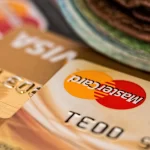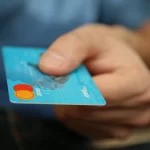The digital revolution has reshaped the world and most aspects of our lives, predominantly for the better. We can now access a treasure trove of information with a simple click, enjoying the convenience of e-commerce, online banking, and virtual education. However, the other side of the coin reveals the downsides – internet fraud and diverse forms of cybercrime.
How to Detect and Respond to Internet Fraud and Cybercrime?
Related Topics (Sponsored Ads):

In the internet’s early days, the most common concern was the threat of computer viruses or similar acts of digital vandalism. More recently, the primary menace lies in falling prey to scams or fraud, resulting in cybercriminals maliciously hijacking your personal information, often leading to theft. While it’s true that scams and theft predate the internet, the web has facilitated an increase and ease in such crimes.
The fear of falling victim to these cybercrimes leads some individuals to sever their connections with the internet nearly entirely. However, given our reliance on the internet today, this isn’t a pragmatic or necessary solution. By possessing basic knowledge and implementing precautionary measures – as highlighted below – most individuals can navigate the internet with minimal risk.
Red Flags
Adhering to basic guidelines and precautions will hopefully keep you safe from cybercrime. Nonetheless, it’s important to be conscious of the telltale signs of victimization, enabling swift and suitable action.
- Bank Account: Look for unauthorized withdrawals or transfers, changes to your personal information, loan applications or approvals, or account closures. Regularly scrutinize your bank accounts in detail.
- Credit Cards: Watch out for unauthorized charges, increases in credit limits, changes to personal information, or requests for additional cards. Stay vigilant about your credit card accounts, just like your bank accounts.
- Other Financial Accounts and Bills: Keep an eye on accounts related to mobile services, cable TV, internet service providers, and similar services. Ensure no unauthorized activity is taking place.
- Department of Motor Vehicles: Regularly verify your DMV info as your driver’s license is perhaps your most crucial ID – this ensures nobody is attempting identity theft.
- Social Security and IRS: Check your information periodically, particularly regarding changes in name or address – to ensure your benefits or refund checks aren’t being misdirected.
- Credit Reports: Almost all credit financial transactions will appear on your credit report – including loan or credit applications, lease applications, personal information changes, etc. You’re entitled to a free copy of your credit report periodically, which you should obtain and scrutinize.
Cybercrime Varieties
- Phishing or Spoofing: These activities involve fake emails, text messages, or duplicate websites to perpetrate identity theft. They’re used to steal personal information, including credit card and bank account numbers, debit card PINs, and account passwords.
- Data Breaches: These occur when sensitive data (personal or financial information) is illegally accessed or inadvertently leaked from a secure location. This information could be exploited for identity theft or financial fraud.
- Malware: This is harmful software designed to commandeer computers and purloin information.
- Credit Card Fraud: Scammers fraudulently secure credit or debit card numbers to misappropriate money or property.
Preventive Measures
- Learn to identify prevalent scams and fraud. Familiarize yourself with the warning signs of internet fraud, phishing, and other digital deceptions.
- Keep your computer software updated. Ensure your operating system, web browsers, and apps are always running on the latest versions.
- Educate your children about online safety and responsibility. Discover ways to protect your family online by teaching them about the risks.
- Get familiar with cyber security basics. Learn how to react during and after cyber attacks and what steps you can take to prevent them.
- Avoid using identical passwords for multiple accounts. Try to create unpredictable passwords and refrain from using names, dates, or common words. Never share your passwords with untrusted individuals.
- Avoid sharing personal information over unencrypted websites. Trust only encrypted websites that begin with “https” (the “s” stands for secure). These sites transform your information into a code, thereby shielding it from potential scammers.
Report Fraud
If you suspect you’ve fallen prey to internet fraud or cybercrime, report it to the FBI’s Internet Crime Complaint Center (IC3). Your complaint will be passed on to federal, state, local, or international law enforcement agencies.
Also, notify your banks, credit card companies, and all other accounts. Let them know if you’re disputing unauthorized charges or changes and if you believe your account has been compromised. Additionally, file a formal report with the credit reporting agencies.








